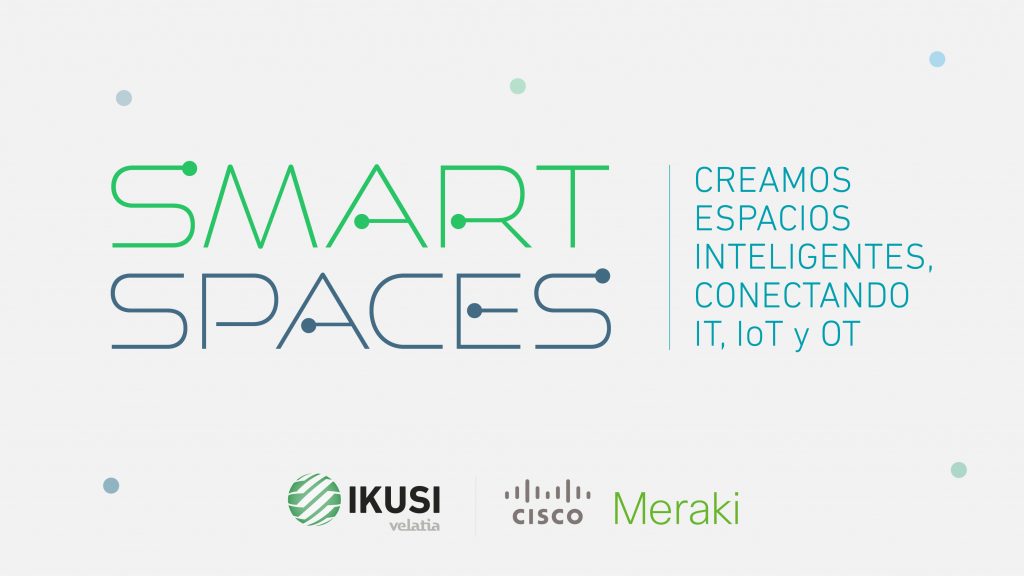
Encouraging smart spaces becomes a determining factor for the development of new business opportunities and the efficiency of existing ones
If there is one thing that new digital technologies have made clear in recent years, it is the enormous value they can bring to businesses. Whether in digital-based activities or wherever digitalisation is a tool for adapting to the new times, the revolutionary capacity of the Internet –to encompass all these technologies within a single term– has proven to be crucial. These tools have been evolving in different trends such as the one we are going to discuss today. You’ve probably heard of Smart Cities. The term we want to look at today is part of this Smart ecosystem, although it is clearly distinctive. We are referring to smart spaces for businesses. Let’s see what they are.
We can define smart spaces for businesses as ecosystems where the connectivity of IT (telecommunications infrastructure), IoT (internet of things) and OT (operational technology) join forces to provide businesses with data and opportunities they would not have explored if they had not combined the power of these digital tools. Therefore, businesses that develop these ecosystems are able to benefit from management tools to boost energy savings at their premises, control capacity or optimise their resources and spaces. All this thanks to the exhaustive interpretation of data and the opportunity to exploit it. That’s right, data is king once again. So perhaps the question is, how do they manage to do this? Well, the answer lies in the combination of these technological disciplines, which only a few proven players are able to implement.
So, now that we have had a small glimpse of what these spaces are –even though we are probably still a long way from understanding how they work– let’s get a deeper insight into how these spaces work behave and what competitive benefits they offer.
What benefits do smart spaces offer a business?
Well, the first thing to bear in mind is that these smart spaces are not just a trend; instead, they are necessary to contribute to energy efficiency and help protect the environment. Therefore, we find that spaces that can be made smart account for 36% of final energy consumption, as well as 40% of CO2 emissions, according to Fira Barcelona. This is why having data about our consumption, thanks to the interconnectivity of all the technology used in the activity of an office, for example, on a daily basis, is a key factor. Monitoring makes it possible to detect, in a preventive manner, problems with heating, piping and other infrastructures, as well as the occupancy of internal resources, user behaviour, etc. All of this saves time and resources in repairs and reduces disruption of the activity of the business and its customers.
But smart spaces are much more than just efficient spaces. These ecosystems base their development on finding new ways to exploit business potential by combining the physical and digital worlds through the use of technologies. Therefore, being able to offer all the possibilities of the cyber world in a single space allows new business developments to emerge. This can be seen in the digitalisation of certain critical processes, the promotion of the digital twin for industries, and the not so new but definitely successful embrace of the Internet by some companies focused solely on their traditional physical market.
Finally, these spaces should have extra protection in terms of cybersecurity. After all, the big risk of data exploitation is the exposure and possible vulnerability of the data itself. For this reason, businesses devoted to these matters should have a long track record not only in digitalising processes, but also in protecting them thanks to a cybersecurity shield.
Want to know more about smart spaces for businesses? You’re in luck
An interesting meeting was held in Madrid on Thursday 16 June. Ikusi, with its expertise in digitalisation and cybersecurity, joined forces with Cisco Meraki and Analytiks Al, two indisputable leaders in digitalisation, to show different cases in which the combination of IT, IoT and OT has been key to the development of new business and efficiency opportunities.
Jean Luc-Tremblay, a Canadian technologist with a long career in this field, was the special guest at this meeting, where he was joined by several professionals from Cisco Meraki and Ikusi to discuss this new business opportunity in depth.
Click on the image below and discover what happened:



